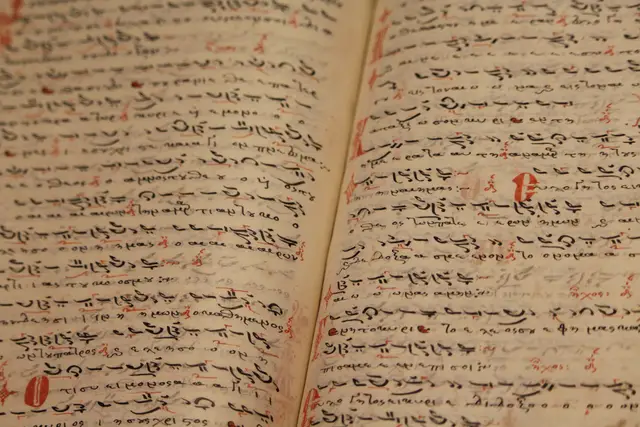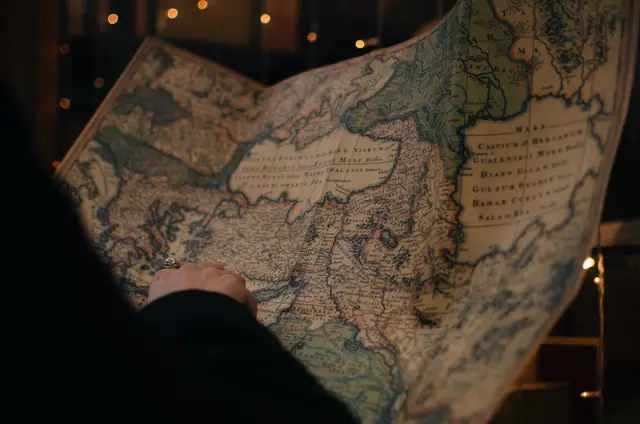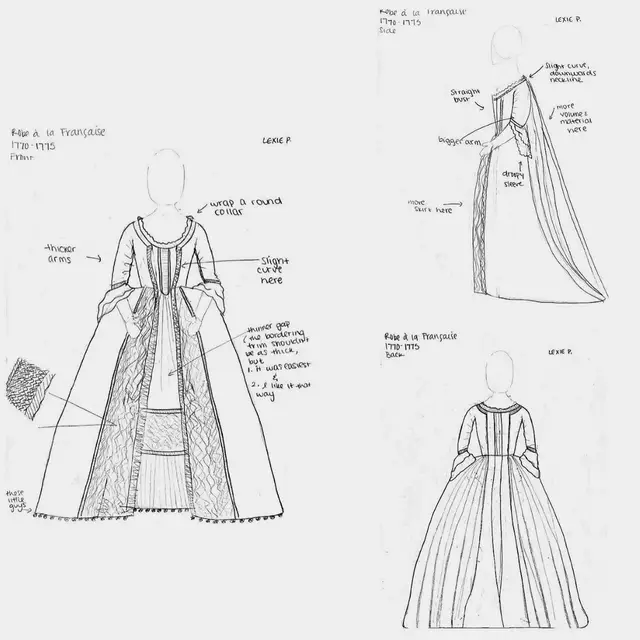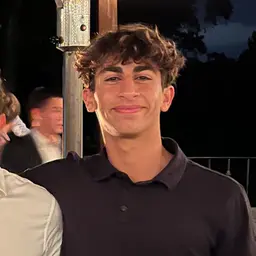Types of History Research and Careers
Historical research includes archival research, oral history, and quantitative analysis. Archival research involves examining primary source documents, while oral history captures personal narratives through live interviews. Quantitative history employs statistical methods to analyze historical data.
Beyond traditional roles in academia, careers for historical researchers include museum curators, who manage and interpret historical collections, and archivists, responsible for preserving and organizing historical documents. Historical consultants can work with businesses, government agencies, or film directors to provide historical context for projects. Some authors—Hilary Mantel, Umberto Eco, and Ken Follett, for example—write historical fiction, where they blend research with storytelling. Another career option is forensic history, in which historians collaborate with law enforcement to investigate historical mysteries or cultural property theft. Digital historians leverage technology to create interactive exhibits or contribute to digital humanities projects. Genealogists use historical records to trace family histories.
Such diverse career options allow individuals to apply historical research skills in innovative and impactful ways.
How to Get into History
Start by choosing a specific era or topic that captivates you. Dive into reputable books, documentaries, and online resources to build a foundational understanding. Seek guidance from teachers or local historians, and consider participating in history-related clubs or activities. Be sure to question your sources, especially digital sources. If possible, explore physical primary sources in local archives or museums. Attend history lectures or events to broaden your perspective. Here are some more resources.
1. Take a Class in High School
If you're interested in becoming a historian, it's important to build a well-rounded foundation in various subjects that will enhance your analytical, research, and communication skills. Here are some standard and less obvious high school classes that can contribute to your preparation for a career in history:
World History - Provides a broad understanding of major events and developments globally.
U.S. History - Focuses on the history of the United States, a fundamental subject for many historians.
Advanced Placement (AP) English - Develops critical reading and writing skills, crucial for historical analysis and research papers. Advanced Composition or research writing also enhances your ability to articulate historical findings clearly.
Geography - Understanding the geographical context of historical events can provide valuable insights.
Economics/Government - Helps in understanding the socio-political and economic aspects of historical events.
Latin or Classical Languages - Useful for understanding ancient texts and civilizations.
Modern Languages - Depending on your historical focus, knowledge of languages like French, Spanish, German, or others may be beneficial.
Statistics - Essential for analyzing and interpreting historical data.
Archaeology or Anthropology - Provides insight into human societies and cultures through the study of artifacts and physical remains.
Computer Science or Digital Media - Familiarity with digital tools and research methods is increasingly important in modern historical research.
Art History or Music History - Understanding the cultural and historical context of art and music can enrich your understanding of a specific time period.
Philosophy - Develops critical thinking skills and an understanding of different worldviews that can be valuable in historical analysis.
Public Speaking - Enhances your ability to present historical findings effectively, a crucial skill for historians.
Psychology or Sociology - Provides insights into human behavior, which can be valuable when analyzing historical events and figures.
Internships or Independent Study - Seek opportunities for internships or independent study projects with local historical societies, museums, or archives to gain practical experience.
Remember that the specific classes available may vary by school, so it's essential to take advantage of any unique opportunities or specialized courses that align with your historical interests. Additionally, consider participating in extracurricular activities like history clubs, academic competitions, or research projects to further develop your passion for history.
2. Read a Book
Here are some foundational books we chose based on their historical significance, influence on the field of history, and their enduring relevance. They often mark key moments in the development of historical thought or provide key insights into significant periods and cultures. We also include some newer works that challenge traditional perspectives and contribute to the evolution of historical discourse. These books provide a mix of foundational knowledge and more contemporary perspectives, encouraging a well-rounded understanding of historical scholarship. Keep in mind that interpretations in history can vary, and engaging with a variety of perspectives is key to developing a nuanced understanding of the past.
Foundational Readings:
The Histories by Herodotus (c. 440 BCE) - Often considered one of the earliest works of history, this ancient Greek text covers the Greco-Persian Wars and offers insights into various cultures.
The Peloponnesian War by Thucydides (c. 431 BCE) - Thucydides provides a detailed account of the conflict between Athens and Sparta, emphasizing the importance of political and social factors.
The Prince by Niccolò Machiavelli (1532) - Though more political philosophy than history, this work explores the nature of power and leadership, influencing historical thought.
The Rise and Fall of the Roman Empire by Edward Gibbon (1776) - A comprehensive analysis of the Roman Empire's history, widely regarded as a foundational work in the field of history.
The Communist Manifesto by Karl Marx and Friedrich Engels (1848) - While primarily a political and economic treatise, understanding Marx's ideas is crucial for interpreting many aspects of modern history.
The History of the Decline and Fall of the Ottoman Empire by Mustafa Ali (1731-1754) - This Ottoman historian's work offers insights into the decline of the Ottoman Empire from an insider's perspective.
Newer Thought-Provoking Works:
Guns, Germs, and Steel by Jared Diamond (1997) - Explores the impact of geography and environment on the course of human history, challenging traditional Eurocentric perspectives.
A People's History of the United States by Howard Zinn (1980) - Offers an alternative narrative of U.S. history from the perspective of marginalized groups, challenging mainstream historical interpretations.
Sapiens: A Brief History of Humankind by Yuval Noah Harari (2014) - A provocative exploration of the history of Homo sapiens, covering the cognitive, agricultural, and scientific revolutions.
The Silk Roads: A New History of the World by Peter Frankopan (2015) - Challenges Eurocentrism by examining the historical significance of the Silk Roads and the interconnectedness of civilizations.
The Swerve: How the World Became Modern by Stephen Greenblatt (2011) - Explores the impact of the rediscovery of Lucretius' poem on the Renaissance and the shaping of modern thought.
1491: New Revelations of the Americas Before Columbus by Charles C. Mann (2005) - Challenges traditional views of pre-Columbian America, presenting new perspectives on the advanced civilizations that existed before European contact.
The Better Angels of Our Nature: Why Violence Has Declined by Steven Pinker (2011) - Argues that violence has decreased over human history, challenging perceptions of historical periods as more violent.
3. Extracurricular Study
Here are some activities you can do outside of classroom time to practice your skills in researching, presenting, and sharing historical knowledge.
History Club - Join or establish a history club at your school. This provides a platform to discuss historical topics, organize events, and interact with like-minded peers.
Model United Nations (MUN) - Participate in MUN conferences to improve research, negotiation, and diplomacy skills. MUN often involves addressing historical and contemporary global issues.
Debate Team and/or History Bowl - Participate in academic competitions such as Debate Team, History Bowl, History Bee, or Quiz Bowl. These events challenge your historical knowledge and critical thinking abilities. They can also build your public speaking and argumentation skills.
Internships at Museums or Archives - Seek internships or volunteer opportunities at local museums, historical societies, or archives. This hands-on experience provides insight into archival work, curation, and preservation.
Writing for School Publications - Contribute articles on historical topics to your school newspaper or literary magazine to develop your writing skills and share your passion with a wider audience.
Community Service Projects - Engage in historical community service projects, such as documenting local history, conducting oral history interviews, or assisting with historical preservation efforts.
Language Clubs - Join language clubs related to historical languages (e.g., Latin, Ancient Greek, or others) to enhance your linguistic skills and deepen your understanding of historical texts.
History Research Opportunities
Once you have some ideas about what time period you’d like to research, you could pursue your vision at a pre-college program, a local community college, a competition, an internship, or a virtual program. If you want to be free to conduct your own project, we still advise that you give yourself a deadline and have a mentor who you can consult.
Find research programs close to home
We’ll go into summer history programs in more depth in the next section, but if you want to find all types of established research opportunities close to home, our High School Student Research Opportunities Database is an excellent resource. Click on your state, then search based on your location, institution, event type (in-person or virtual), and tuition (paid or free).
Join Online History Communities
Participate in online history forums, discussions, and social media groups to connect with a broader community of historians and history enthusiasts. JSTOR Daily has a community section where you can find articles, discussions, and updates related to historical and political topics. Goodreads also has various groups dedicated to history and politics. Joining these groups allows you to participate in book discussions, recommendations, and more. You can also visit subreddits like r/history, r/AskHistorians, r/Ask_Politics, and others for a wide range of historical and political discussions. Always check the rules and guidelines for each subreddit.
Work with a professor
If you have a clear idea of your passions, you can reach out to professors in your field to see if they are open to collaborating with you. Refer to our Guide to Cold-Emailing Professors (written by Polygence literature research mentor Daniel Hazard, a Ph.D. candidate at Princeton University).
Engage in your own research project
Students with initiative and focus can opt to tackle research independently. Carly Taylor, a Stanford University senior who has completed several research projects this way, outlined a guide about how to write a self-guided research paper. By reading it, you’ll get a better understanding of what to expect when taking on this type of project.
Summer Programs in History
Here are some top picks for summer history research programs. We chose them based on a combination of their affordability, name recognition, social opportunities, and academic rigor.
Stanford Summer Humanities Institute
Hosting Institution: Stanford University
Cost: $8,250 USD for 2023
Format: In person (Stanford, CA)
Application deadline: February
Here’s an opportunity to study at Stanford University. Coursework includes Ancient Rome, The Greeks, Revolutions, The American Enlightenment among others. Students explore the humanities at a college level, investigate philosophical questions, and pursue exciting research topics that are chosen by each participant. Check the site for the most current application information.
1. Pre-College Program in American History
Hosting Institution: Wiliam & Mary and National Institute of American History & Democracy (NIAHD)
Cost: $2,500 - $5,000 USD
Format: Online and in-person (Williamsburg, VA)
Application deadline: Late May
These three-week sessions are a rigorous prep for college. Students participate in class discussions with a maximum of 12 students; are expected to read 30-60 pages of college-level articles and primary source documents each night; and will submit written work each week. Course work includes “Artifacts of American History,” “The Road to the American Revolution,” and “The Road to the United States Civil War.” Check the site for the most current application information.
2. Ancient Civilizations, History, & Myth
Hosting Institution: Smithsonian Institute
Cost: $8,290 USD + airfare
Format: In person (Europe - various cities)
Application deadline: Mid-March 15
Traveling to Greece and Italy, students dive into the history and traditions of these countries on this high school summer program in the Mediterranean. Participants explore the legacy of the Greek and Roman empires as they travel through the countries where the history was made. Athens, Crete, Santorini, Naples, and Rome among others. Students learn, see, feel how history and the present coexist in Rome, where Renaissance architecture and Roman ruins are integrated in a dynamic modern city. Check the site for the most current application information.
For more picks, check out our Top 10 History Research Summer Programs.
If you’re searching for a virtual history research opportunity, consider doing a project through Polygence with one of our History mentors.
History Internships for High School Students
A few of the summer programs we found were either paid or unpaid internships. You can also check for internship opportunities with your local community college, university, museum, or historical society. Other good places to check out are rare book libraries, government offices, national park services, or community restoration projects.
1. Student Historian Internship Program
Hosting institution: New-York Historical
Compensation: Unpaid volunteer
Format: In-person (New York, NY)
Application deadline: Mid-Feb
High school students participating in the Student Historian internship utilize New-York Historical resources to conduct research and create digital projects. They learn about careers in museums, libraries, and history fields, collaborate with peers to improve public speaking and leadership skills, and engage in hands-on work to enhance their knowledge of American history. The internship's focus is on Our Composite Nation: Frederick Douglass’ America. Although this internship is unfortunately unpaid, there is an option to receive community service hours or school credit. Check the site for the most current application information.
2. Met High School Internships
Hosting institution: The Metropolitan Museum of Art
Compensation: ≈ $1125
Format: In-person (New York, NY)
Application deadline: Early March
Rising juniors and seniors from New York, New Jersey, and Connecticut can connect with professionals in the fields of art, museum, and creativity at one of the world’s finest museums—The Metropolitan Museum of Art—with this awesome paid internship. This internship isn't just for students interested in art - This opportunity enables you to connect with Museum professionals individually or in small groups, in various fields such as editorial, marketing, social media, education, scientific research, conservation, and others. Check the site for the most current application information.
3. Library of Congress
Hosting institution: Office of the Librarian
Compensation: Unpaid volunteer
Format: Online and in-person (Washington, DC)
Application deadline: Late April
If you're interested in public programming, historical research and writing, exhibition development, and outreach, this four-week internship offers a unique experience. Your research will help develop content to support the new participatory learning space for youth and families in the Library of Congress. Check the site for the most current application information.
Polygence Scholars Are Also Passionate About
History Project Ideas and How to Brainstorm Your Own
A history project gives you the chance to delve into the past, exploring events, individuals, and societal changes that fascinate you. While you can always go the route of the traditional research paper, you can also consider a vast array of creative alternatives. Consider crafting a compelling documentary or putting on a play, where visuals and narration bring history to life. Or try serial podcasting, using the power of audio and the flexibility of the short form. Embracing diverse formats not only showcases versatility but also enriches the learning experience, making history accessible and engaging.
1. Nature's Past: Let's Do Environmental History!
When you think of “history” you might think of politics and battles but it is so much more than that! Instead of writing a paper on a specific event, try focusing on the environment and the material world. How much better was the environment when everyone rode horses instead of driving cars? What environmental problems did society face in the past and how do those compare or differ from today?
Idea by history research mentor Gustave
2. History Podcast
Choose a recent event that revolves around race and capitalism within the U.S. Pull together articles, news stories, and social media posts to view the different reactions to this event that occurred. Compare this current event to a similar past event and create a podcast or video of your findings.
Idea by history research mentor Samantha
3. Family History
Gain a better understanding of your family’s past and the historical events your ancestors may have lived through. Start by interviewing your relatives and listening to their stories in order to collect as much information as possible. Ask questions about your ancestors, places where they’ve lived, collect documents, record oral histories, etc. By using the information given, you can do a deeper dive into your family's past. Write your own family’s history or create a podcast!
Idea by history research mentor Luther
Check out even more project ideas on the 10 History Passion Project Ideas for High School Students post.
You can also brainstorm your own project ideas. If you want support, the Pathfinders program gives you the chance to meet with three different mentors who specialize in your field of interest. You can discuss your project ideas with them, and they can help you grow your idea, discover new research techniques, and point the way to great resources and alternative options.
History Projects from Polygence Scholars
To get you inspired with the variety of forms your history research project could take, here are a few projects by some of our Polygence Scholars.
1. A Board Game All About the American Revolution
Michael's game focuses on American history, specifically the colonial era and the American revolution. Players roll dice to determine how far they will move each round, and the goal is to reach the end while witnessing as many historical events as possible. There are also different tiles that represent different events, each spot meant to educate the player on that aspect of history.
2. Learning from the Master: A Conceptual Drawing
Israel's project focused on Leonardo da Vinci as a scientist, inventor, and artist. He studied da Vinci's legacy and interrogated the perspectives da Vinci represents today. Like da Vinci's, he kept a notebook/sketchbook to think through the ideas that were presented in his research and his project culminated in a finished drawing.
3. Transracial East Asian Adoptees: Navigating Identity as Cultural Frankensteins
Julia’s curiosity about her own experience led her to write this research project on transracial adoptions and its impacts on identity formation. She examined the theme of “cultural Frankensteins” in the two films Abandoned Adopted Here and Approved for Adoption, which center around the lived experiences of East Asian transracial adoptees. She also explored the potential struggles many transracial adoptees may face in everyday life. She presented her paper at the Spring 2023 Symposium.
Writing a History Research Paper
The secret to writing a great history research paper is to choose a time period and subject matter that truly excites you. You will be spending a lot of time researching it so the more curious you are about the subject, the easier it is to motivate yourself to work on it. For pro tips and in-depth instructions, be sure to read our How to Write a Research Paper as a High School Student post. For now, let’s go over several key steps and components of writing a strong research paper:
Select a Relevant and Intriguing Topic: Choose a topic that is meaningful to you. Maybe it has something to do with your own family’s history or someone you admire.Make sure your topic is specific and come up with some clear research questions.
Conduct Thorough Research - Gather information from reputable sources, including academic journals, books, and online databases. Cite sources properly.
Formulate a Research Question - Define a clear and concise research question that your paper will address. This question guides your investigation.
Develop a Strong Thesis - Craft a well-defined thesis statement that conveys the main argument or purpose of your paper. This may change as you unearth new information.
Create an Outline - Organize your paper's structure with an introduction, topic ideas, transitions, and a conclusion. The more preliminary work you can do before you get started on the actual writing of your paper, the easier it will be later.
Writing Process - Be sure to set some time aside to work on it every day. Better to just do a little over a longer period of time than to try to cram everything in at the last minute. Create a schedule for yourself working backwards from your deadline. Be sure to add extra time for editing and reviewing with a mentor or teacher.
Citations and References - Ensure proper citation of sources using a recognized style guide (e.g., APA, MLA).
Proofread and Edit - Carefully review your paper for grammar, spelling, and clarity issues.
An excellent history research paper distinguishes itself through thorough research using credible sources, a well-defined thesis, clear and concise writing, and meaningful analysis. It offers a fresh perspective, contributes to the existing body of knowledge, and provides fresh insights. Seek feedback from teachers or mentors to refine your work and elevate it to a higher standard.
Finally, if you have some ideas and want to conduct history research with the guidance of a mentor, apply to be a part of our flagship mentorship program.
Showcasing History Projects
If you do decide to write a research paper for publication, you might want to take a look at potential journals before you even start your research. Browsing through previous articles will give you a sense of the length, tone, format, and other specifications you would need to fulfill in order to publish your findings. Here are some publications you could look into.
1. Concord Review
The Concord Review is a quarterly journal that publishes exceptional essays written by high school students on historical topics. That said, if your business research has a historical bent to it, it might be eligible for submission. The journal has been around since 1987 and has a great reputation, with many student winners going to great universities. If your paper is published, your essays will also be sent to subscribers and teachers all around the world, which is an incredible achievement.
Papers submitted tend to be around 8,000 words, so there is definitely a lot of writing involved, and the Concord Review themselves say that they are very selective, publishing only about 5% of the essays they receive. We’ve posted our complete guide on publishing in the Concord Review here.
Cost: $70 to Submit and $200 Publication Cost (if accepted)
Deadline: Fixed Deadlines in Feb 1 (Summer Issue), May 1 (Fall), August 1 (Winter), and November 1 (Spring)
Type of research: History / Social Sciences
2. John Locke Essay Competition
This contest gives you the chance to refine your skills in argumentation (e.g,, independent insights, depth of knowledge, clear reasoning, critical analysis, and rhetoric) and have your work assessed by experts. You can choose from 1 of 3 challenging questions posed in 7 different categories (Philosophy, Politics, Economics, History, Psychology, Theology, and Law) in the form of a 2,000-word (max) essay. There’s also a junior category for students who are under age 15 (i.e., 14 or younger). Your entry will be judged by a panel of Oxford and Princeton faculty. Winning essays are posted on the John Locke Institute website, and you can check out the fascinating archive. Check out our post Everything You Should Know about the John Locke Institute (JLI) Essay Competition for more info.
Hosting institution: John Locke Institute
Awards: Awards: $2,000 scholarship (for 1st in each of the 8 categories)
Application deadline: Late May
Submission deadline: Late June
3. The Schola
The Schola is a peer-reviewed quarterly journal that showcases essays on various humanities and social sciences topics authored by high school students worldwide. They feature a diverse range of subjects such as philosophy, history, art history, English, economics, public policy, and sociology.
Editors at Schola are academics who teach and do research in the humanities and social sciences
Cost: $180 submission fee
Deadline: Rolling
Subject area: Humanities
Type of research: Essay submission
4. Research Archive of Rising Scholars (RARS)
Research Archive of Rising Scholars is Polygence’s own preprint server! We were inspired by arXiv so we created a repository for articles and other creative submissions in STEM and the Humanities.
We launched RARS in 2022 and we’re excited to offer a space for budding scholars as they look to publish their work in journals. To get a sense of business research papers we have published in the past, check out the results of a “history” search.
Cost: Free
Deadline: Rolling
Subject area: STEM and Humanities
Type of research: Original research, review articles
Check out the Publishing Your Research as a High Schooler: 20 Journals and Conferences to Consider post for more options.































































